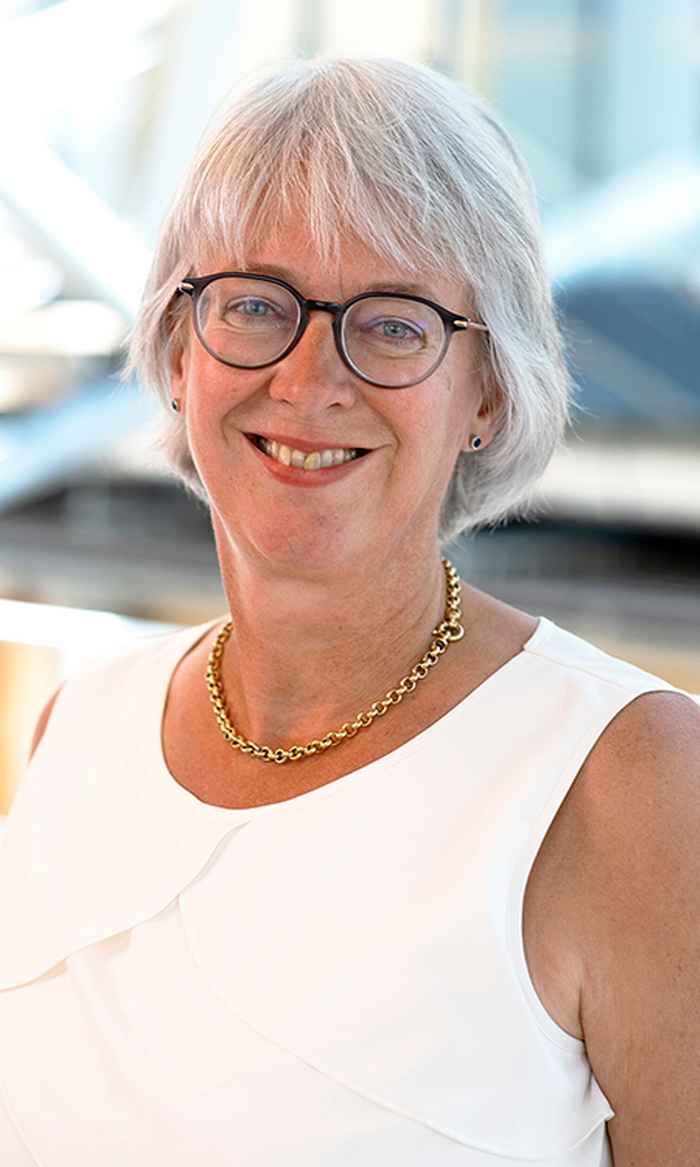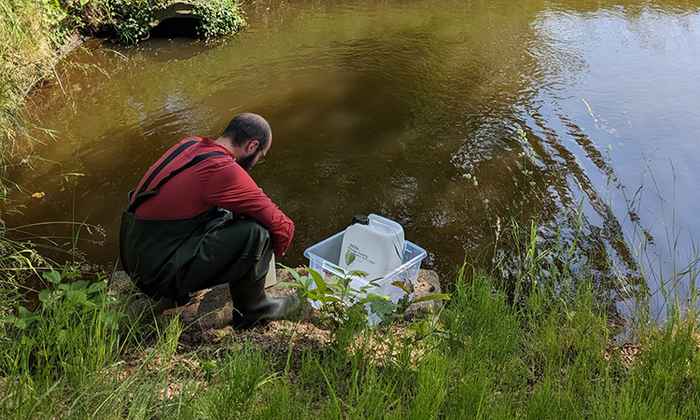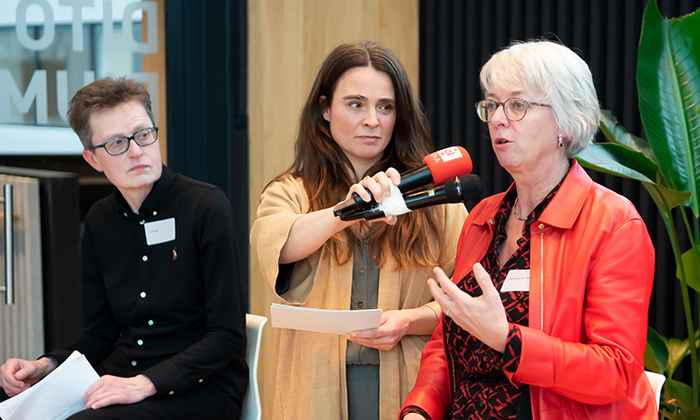'There will always be clean drinking water running from the tap in the Netherlands, it's just a question of at what price.'
11 July 2024

Van Wezel underlines how great the concerns in society are about the presence in the environment of plastics and chemicals that are endocrine disruptors or could lead to ADHD, reduced fertility, developmental disorders, changes in immune response, etc. She calls it a shame that a country like the Netherlands, with so much water and water knowledge, is still the most polluted in Europe.
How did it come to this?
It has mainly to do with the high population density and intensive agriculture and industry, but Van Wezel also points to the decentralisation of environmental policy since the 1990s. Among other things, this has meant that no one in the Netherlands has the complete overview of current discharge permits, readily available in other countries such as Belgium.
She resolutely dismisses the excuse that the Netherlands is Western Europe's drain and that our delta is mainly polluted by the incoming rivers. Van Wezel: 'Research into medicine residue pollution has shown that our own contribution in most surface water bodies is much greater than that of our neighbours.' The Netherlands Environmental Assessment Agency concluded in 2023 that only 0.4 per cent of Dutch waters complied with the Water Framework Directive for substances specifically designated for certain areas. Time and time again The Netherlands has asked for postponement but will have to comply with this European directive for clean and ecologically healthy water by 2027.
Van Wezel: 'Little thought is being put into what it means to keep discharging these persistent compounds into the environment. If no action is taken, concentrations in the water will irrevocably rise further with negative consequences for both our health and that of the ecosystem. It is often considered difficult to intervene in production processes, but ultimately a lot can be done with the help of technology and it is also in the interest of the industry itself. That way, you avoid a bad reputation, concerns among residents and depreciation of factories because emissions are not up to date.' An example of the latter is Swedish steel company SSAB, which gave up on acquiring TATA Steel IJmuiden because the Swedes could not 'align' TATA with their sustainability goals.

Hundreds of thousands of chemicals
Van Wezel works regularly with water companies. Her and their biggest concerns relate to persistent, toxic, water-soluble and bioaccumulable chemicals, the latter two because they are respectively the most difficult to remove and accumulate in the food chain. The amount of new chemicals being added every day is unimaginable. Millions of chemicals are now registered with the Chemical Abstract Service in the United States, and a few years ago, 350,000 of them were already approved for use on the market.
Van Wezel: 'I don't like the often used term "complex problems", but when these substances end up in the environment or our bodies, all kinds of transformation reactions take place there, resulting in a multiple of the original 350,000 compounds in new transformation products.'
How safe is our tap water and will it continue to be?
In an interview by Dutch broadcaster Human, Van Wezel warned that 'the dose makes the poison' and that, if we continue like this, 'we will certainly reach levels that are problematic for both ecological and human health'. The question of the danger of PFAS arises, the 'forever chemicals' that worry experts because they pose a risk to human and environmental health. Van Wezel points to the upcoming promotion of her PhD student Mohammad Sadia, who has developed new techniques for investigating the presence of PFAS in drinking water sources.
One of Sadia's conclusions is that especially the PFAS substances with short molecular chains, which spread most easily, are ubiquitous in Dutch groundwater, which is used, among other things, for extracting drinking water. He therefore also looked at the efficiency of the purification techniques used. It turned out that the carbon filters used could work well but, on saturation, could release PFAS again and contaminate clean water.
Drinking water companies have raised the alarm that it is becoming increasingly difficult to produce clean water and have asked for measures. Van Wezel agrees that water technology cannot take everything out, but when asked if she has switched to bottled water, she says that even in restaurants - much to her children's annoyance - she always asks for tap water.
Van Wezel: 'There will always be clean drinking water running from the tap in the Netherlands, it's just a question of at what price. We're already able to make tap water from seawater and even from sewage water. For surface water, new techniques are used all the time and ways in which nature lends us a hand, such as long-term collection in infiltration basins or the dunes.' Enthusiastically, Van Wezel points out that the drinking water industry is one of the largest nature conservationists in the Netherlands.

Water as a driving force
The water issue is not always considered an integral part of climate change, however, Van Wezel believes it should be: 'The climate discussion has obviously become quite dominant and is a lot about water quantity. I always say that water can be too much, too little or too dirty, and every aspect is equally important. Initially, the climate change debate focused mainly on too much water, but now, fortunately, more attention is being paid to too dirty and too little water.' Other links to climate change include chemicals and plastics found in surface water, often produced with fossil fuels.
According to Van Wezel, other goals can also be achieved more easily via water quality. A good example of this, she thinks, is the current focus on all the invisible synthetic chemicals present in water: a direct result of all the attention generated for the much more visible plastic pollution. Van Wezel: 'Water is something very close to us, clean water is a great desire that is really alive and urges us to change.'
Knowledge must land in society
Before her move to the UvA, Van Wezel worked for Rijkswaterstaat, RIVM and the Netherlands Environmental Assessment Agency, among others. She says this past plays into the great importance she attaches to the applicability of scientific research. Van Wezel: 'I very much like to see the knowledge gained at our institute land in society and be used for good there.' IBED researchers naturally have the academic freedom to choose their topics, but Van Wezel tends to focus on projects that contribute to knowledge from which society can benefit.
When asked what she hopes to look back on one day with pride, she starts first by talking about her PhD students and colleagues and her own enjoyment of the work, and then about her ambition to develop new methods for measuring the presence of chemicals and being able to assess their possible harmfulness as early as the development stage.
And finally, and this is where she starts to shine, she would very much like to develop a new risk assessment paradigm so that the risk assessment no longer has to be done substance by substance but can immediately take into account the connection and interaction between different chemicals. Now all she needs is to find some time to write a nice research proposal...
Elles Tukker
UvA Sustainability Platform (USP)